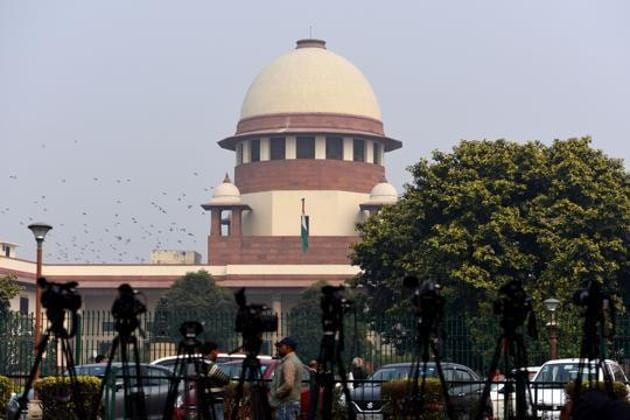Opinion | Supreme Court’s interim order on electoral bonds is disappointing
It is regrettably ironic that in a petition founded on the public’s right to know who funds political parties, the court has ordered that information be provided in a “sealed cover”, safe and secure from the voting public.
Today, the Supreme Court issued an interim order on the constitutional challenge to the government’s electoral bond scheme. The electoral bond scheme is a method of political funding that was introduced in early 2018. The scheme’s salient features include donor anonymity, the elimination of caps on corporate donations, and the loosening of other regulations (such as revealing donations in corporate profit and loss statements). After three days of hearing, the court ordered that all political parties submit details of the donations to the Election Commission by May 30, in a sealed cover.

This order is a disappointment. It is regrettably ironic that in a petition founded on the public’s right to know who funds political parties, the court has ordered that information be provided in a sealed cover, safe and secure from the voting public. More than that, however, if there was any doubt about the unconstitutionality of electoral bonds, it should have been washed away after the last three days of oral argument before the court. This is because the Attorney-General K. K. Venugopal – charged with defending the scheme – had no defence apart from doubling down and simply saying that “the public has no right to know who funds political parties, as long as the funding is legitimate.”
As a constitutional argument, this ranks alongside the then Attorney-General Niren De’s notorious claim during the Emergency that citizens could be shot with impunity, or the present Attorney-General’s own, more recent argument, that the Indian Constitution does not guarantee a fundamental right to privacy. Not only is it blatantly contrary to many years of the Supreme Court’s own precedent on how the voter’s right to information is integral to free and fair elections, and an element of Article 19(1)(a), but it is also profoundly dangerous and anti-democratic: as the old idiom goes, “he who pays the piper calls the tune.”
In a democratic system that does not have publicly-funded elections (such as ours), it therefore becomes crucially important for the public to know who funds political parties, in order to critically evaluate whether that party’s policies are designed to actually serve the public good, or whether they are written to benefit its funders. Indeed, in order to understand the deleterious effects of big money on politics, one need look no further than the United States: it has been repeatedly documented, for example, that there is an almost complete overlap between American politicians who vote against gun regulation, and funding from the National Rifle Association (and this is only one example among many).
To break the matter down into its essentials: if a big, multinational corporation (A) donates a huge amount of money to a political party (B), and on coming to power, that political party rewrites the rules in relevant sectors (such as, for example, environmental regulations) benefiting that corporation, then that entire set of transactions must be open to public scrutiny. Secrecy in political funding ensures an asymmetry of information that goes to the root of the democratic process, and the fairness of elections.
The Attorney-General’s only real argument in court was that black money was eliminated, since donations were now routed through the State Bank of India. As the judges themselves noted, however, this does very little to prevent circuitous payments that escape regulatory scrutiny. More than that, however, black money fails to explain far too much. Black money cannot explain donor secrecy, or in fact, that this secrecy works only one way: through the state-owned SBI, the government is always in a position to know donor details. The electoral bond scheme thus favours the ruling party of the day (made clear by the fact that an overwhelming percentage of the funds through electoral bonds have come to the BJP). Nor can black money explain the removal of caps on corporate donations, the removal of the requirement that a corporation must be three years in existence to donate (thus opening the door to shell companies), and the removal of the requirement that corporations set out their donations in their profit-and-loss statements. All these, and more, provided excellent reasons for the Supreme Court to strike down – or at least stay – the scheme until its final decision.
The court’s own justification for its order seems to be that it is a weighty matter that requires detailed consideration. This, however, is self-serving: the challenge was filed more than a year ago, and the court had ample time to hear it in detail before the ongoing general elections, given its weightiness.
During the Constituent Assembly debates, BR Ambedkar famously said that the Constitution must guarantee not only one man, one vote, but also, one man, one value. An electoral system that allows limitless, anonymous corporate donations to political parties skews the process irrevocably, and makes a mockery of one man, one value. While today’s order does nothing to correct that, one can only hope that eventually, when it hears this weighty matter, the Court will heed its own jurisprudence stressing on the right to know, as well as Ambedkar’s words, and strike down the electoral bonds scheme. Better late than never, after all.
Gautam Bhatia is an advocate in the Supreme Court
The views expressed are personal






